University of Gottingen: Statistics
Updated:
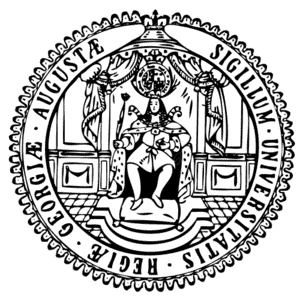

| Position | Category |
|---|---|
| #164 of 14,131 | In the World |
| #53 of 2,785 | In Europe |
| #10 of 369 | In Germany |
| #1 of 26 | In Lower Saxony |
| #1 of 2 | In Gottingen |
| #7 of 2,335 | For Pharmacy |
| Top100 | For 11 other topics |
Quick Review
- Enrollment
- 31,619
- Type
- Non-profit
- Funding
- Public-private
partnership - Highest Degree
- Doctorate
- Website
- uni-goettingen.de
- Languages
- German;English
- Acceptance rate
- 32%*
* The University of Gottingen is among the institutions that don't provide data on acceptance rates. This might happen because the university has programs where applicants only need to meet admission requirements to enroll and don't necessarily compete with others.
We estimate the above acceptance rate based on admission statistics of closely ranked nearby universities with similar research profiles that do publish such data.
Acceptance rate & Admissions
| Admissions Requirements | Secondary school certificate (Reifezeugnis) or equivalent |
|---|---|
| Academic Calendar | April to March (April - September; October-March) |
| Enrollment | 31,619 |
Research profile
University of Gottingen is a world-class research university with 115,481 scientific papers published and 4,017,646 citations received. The research profile covers a range of fields, including Biology, Chemistry, Medicine, Physics, Environmental Science, Engineering, Liberal Arts & Social Sciences, Biochemistry, Genetics, and Computer Science.
University of Gottingen majors
by publication & citation count
Annual publication & citation counts
| Year | Publications | Citations |
|---|---|---|
| 1992 | 1186 | 14610 |
| 1993 | 1096 | 13804 |
| 1994 | 1244 | 15451 |
| 1995 | 1203 | 17279 |
| 1996 | 1543 | 17938 |
| 1997 | 1474 | 20106 |
| 1998 | 1743 | 21954 |
| 1999 | 1709 | 24334 |
| 2000 | 1929 | 27801 |
| 2001 | 1715 | 31514 |
| 2002 | 1815 | 34580 |
| 2003 | 1860 | 40494 |
| 2004 | 1986 | 45642 |
| 2005 | 2185 | 53592 |
| 2006 | 2371 | 58643 |
| 2007 | 2422 | 66820 |
| 2008 | 3069 | 78447 |
| 2009 | 3063 | 90352 |
| 2010 | 3208 | 101786 |
| 2011 | 3787 | 115131 |
| 2012 | 3542 | 130750 |
| 2013 | 3737 | 147485 |
| 2014 | 3880 | 157897 |
| 2015 | 3996 | 168685 |
| 2016 | 3913 | 181955 |
| 2017 | 3996 | 190769 |
| 2018 | 4135 | 205535 |
| 2019 | 4157 | 228947 |
| 2020 | 4786 | 275108 |
| 2021 | 5061 | 310909 |
| 2022 | 4386 | 295918 |
| 2023 | 4342 | 301523 |
| 2024 | 3432 | 291190 |
Tuition
| Local studetns | 165.70 per semester (EUR) |
|---|
The University of Gottingen has financial aid programs and on-campus housing.
Programs and Degrees
The table below displays academic fields with programs and courses that lead to Bachelor's, Master's, and Doctorate degrees offered by University of Gottingen.
Note that the table provides a general overview and might not cover all the specific majors available at the university. Always visit the university's website for the most up-to-date information on the programs offered.
| Programs | Bachelor | Master | Doctoral |
|---|---|---|---|
| Art & Design | Yes | Yes | Yes |
| Biology | Yes | Yes | Yes |
| Business | Yes | Yes | Yes |
| Chemistry | Yes | Yes | Yes |
| Computer Science | Yes | Yes | Yes |
| Economics | Yes | Yes | Yes |
| Engineering | Yes | Yes | Yes |
| Environmental Science | Yes | Yes | Yes |
| Liberal Arts & Social Sciences | Yes | Yes | Yes |
| Mathematics | Yes | Yes | Yes |
| Medicine | Yes | Yes | Yes |
| Physics | Yes | Yes | Yes |
| Psychology | Yes | Yes | Yes |
| Bachelor's Degree | Agriculture, Arts and Humanities, Business Administration, Computer Science, Cultural Studies, Earth Sciences, Economics, Forestry, Law, Mathematics, Medicine, Modern Languages, Natural Sciences, Social Sciences |
|---|---|
| Kirchliche Abschlussprüfung | Protestant Theology |
| Magister | Theology |
| Master | Accountancy, Agriculture, American Studies, Ancient Civilizations, Animal Husbandry, Anthropology, Arabic, Archaeology, Art History, Biochemistry, Biology, Business Administration, Business Computing, Cardiology, Central European Studies, Chemistry, Comparative Literature, Computer Education, Computer Science, Earth Sciences, East Asian Studies, Ecology, Economics, Education, Educational Research, Educational Sciences, English, Environmental Management, Ethnology, European Studies, European Union Law, Finance, Finnish, Foreign Languages Education, Forestry, French, French Studies, Gender Studies, Geography, Geology, German, Germanic Studies, Greek (Classical), Hispanic American Studies, History, Human Resources, Humanities and Social Science Education, Information Technology, International Economics, International Studies, Islamic Studies, Italian, Latin, Law, Linguistics, Management, Marketing, Materials Engineering, Mathematics, Mathematics Education, Medicine, Medieval Studies, Microbiology, Modern History, Molecular Biology, Musicology, Native Language Education, Neurosciences, Pedagogy, Persian, Philosophy, Physical Education, Physics, Political Sciences, Portuguese, Prehistory, Psychology, Religious Education, Religious Studies, Romance Languages, Scandinavian Languages, Science Education, Slavic Languages, Sociology, South Asian Studies, Spanish, Sports, Statistics, Taxation, Theology, Tropical Agriculture, Turkish |
| PhD | Agriculture, Behavioural Sciences, Biochemistry, Biological and Life Sciences, Biology, Business Administration, Cell Biology, Chemistry, Cognitive Sciences, Computer Science, Earth Sciences, Ecology, Economics, Forest Biology, Forestry, Genetics, Geography, Law, Mathematics, Medicine, Microbiology, Molecular Biology, Neurosciences, Philosophy, Physics, Protestant Theology, Psychology, Social Sciences, Theology, Wood Technology |
| Habilitation | Agriculture, Biological and Life Sciences, Chemistry, Earth Sciences, Economics, Forestry, Geography, Law, Mathematics and Computer Science, Medicine, Philosophy, Physics, Social Sciences, Theology |
University of Gottingen alumni
-
Robert Oppenheimer

- Occupations
- art collectornuclear physicisttheoretical physicistscience administratorphysicist
- Biography
-
J. Robert Oppenheimer was an American theoretical physicist who served as the director of the Manhattan Project's Los Alamos Laboratory during World War II. He is often called the "father of the atomic bomb" for his role in overseeing the development of the first nuclear weapons.
-
Otto von Bismarck
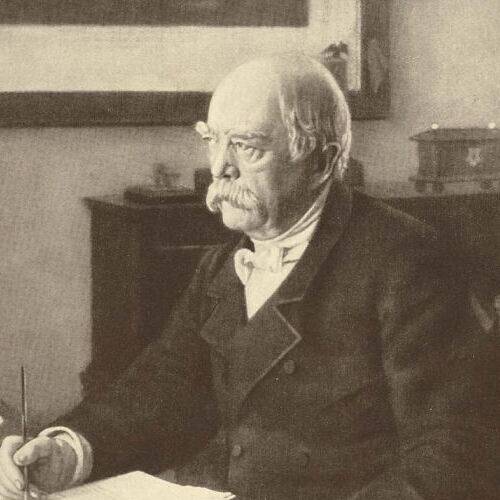
- Enrolled in the University of Gottingen
- 1832-1833 studied legal science
- Occupations
- volunteer serving one yearpoliticiandiplomatjuristwriter
- Biography
-
Otto, Prince of Bismarck, Count of Bismarck-Schönhausen, Duke of Lauenburg was a Prussian statesman and diplomat who oversaw the unification of Germany. Bismarck's Realpolitik and firm governance resulted in him being popularly known as the Iron Chancellor (German: Eiserner Kanzler).
-
Ursula von der Leyen

- Occupations
- politicianphysicianequestrian
- Biography
-
Ursula Gertrud von der Leyen is a German politician, serving as the 13th president of the European Commission since 2019. She served in the German federal government between 2005 and 2019, holding positions in Angela Merkel's cabinet, most recently as Federal Minister of Defence. She is a member of the centre-right Christian Democratic Union (CDU) and its affiliated European political party, the European People's Party (EPP). On 7 March 2024, the EPP elected her as its Spitzenkandidat to lead the campaign for the 2024 European Parliament elections. She was re-elected to head the Commission in July 2024.
-
Arthur Schopenhauer

- Enrolled in the University of Gottingen
- Studied in 1809
- Occupations
- translatoruniversity teacherwriterphilosophermusicologist
- Biography
-
Arthur Schopenhauer was a German philosopher. He is known for his 1818 work The World as Will and Representation (expanded in 1844), which characterizes the phenomenal world as the manifestation of a blind and irrational noumenal will. Building on the transcendental idealism of Immanuel Kant, Schopenhauer developed an atheistic metaphysical and ethical system that rejected the contemporaneous ideas of German idealism.


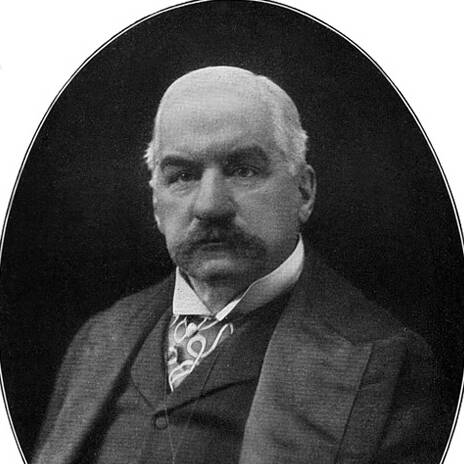
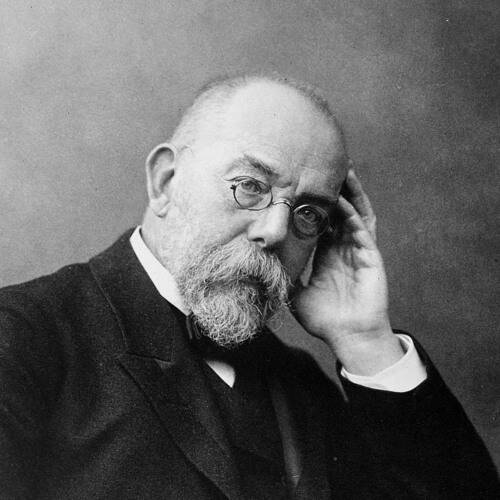
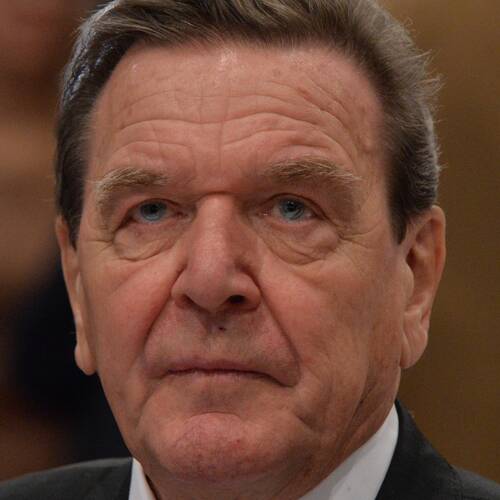
University of Gottingen faculties and divisions
| Faculty : Agricultural Sciences | Agriculture |
|---|---|
| Faculty : Biology and Psychology | Biology, Psychology |
| Faculty : Chemistry | Chemistry |
| Faculty : Economic Sciences | Accountancy, Business Administration, Economics, Finance, Human Resources, Management, Marketing, Taxation |
| Faculty : Forest Sciences and Forest Ecology | Ecology, Forestry |
| Faculty : Geoscience and Geography | Environmental Management, Geography, Geology |
| Faculty : Humanities | Ancient Civilizations, Arabic, Archaeology, Art History, Arts and Humanities, Classical Languages, East Asian Studies, Finnish, History, Musicology, Philology, Philosophy, Romance Languages, Scandinavian Languages, Slavic Languages |
| Faculty : Law | Law |
| Faculty : Mathematics and Computer Science | Mathematics |
| Faculty : Physics | Physics |
| Faculty : Social Sciences | Ethnology, Gender Studies, Indic Languages, Political Sciences, Social Sciences, Sociology |
| Faculty : Theology | Bible, Ethics, Jewish Studies, New Testament, Religious Studies, Theology |
General information
| Alternative names | University of Göttingen Georg-August-Universität Göttingen |
|---|---|
| Founded | 1734 |
| Accreditation | Zentrale Evaluations und Akkreditierungsagentur (ZevA) |
| Motto | In publica commoda |
Location and contacts
| Address | Wilhelmsplatz 1 (Aula) Göttingen, 37073 Germany |
|---|---|
| City population | 120,000 |



